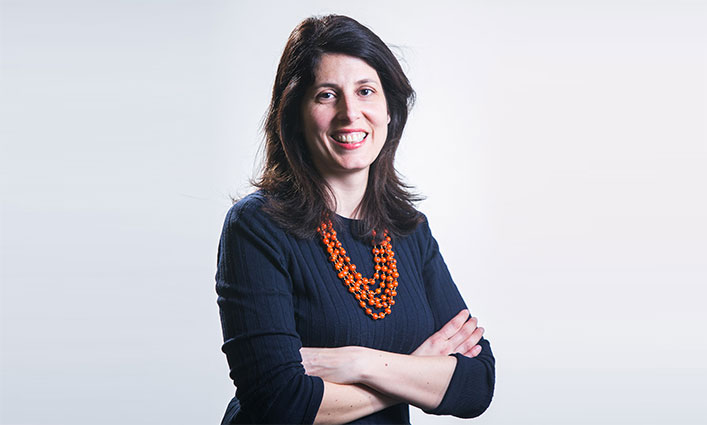
If gender inequity is baked into today’s workplace, what can John Jay students and other Master in Public Administration (MPA) candidates do to help fix the problem? Maria D’Agostino, with co-authors Helisse Levine (LIU-Brooklyn) and Meghna Sabharwal (UT-Dallas), published an article in the Journal of Public Affairs Education in March that represents a first step toward answering that question.
D’Agostino, an Associate Professor in the Department of Public Management, has focused her recent research on women in public administration. Not only are women, along with other persons whose gender presentation isn’t traditionally male, underrepresented in leadership and management roles but, according to the theory of Second-Generation Gender Bias, the workplace isn’t even built to accommodate the needs of anyone but men.
Longstanding cultural beliefs and biases, formed over many decades, put up invisible barriers to women’s advancement, and workplace structures and practices can inadvertently favor men. One such practice is negotiation, which figures prominently in 21st century workplaces. When negotiating for starting salaries and other benefits, studies show that men see better negotiation outcomes than women, and that these differences are more due to stereotyping and structural bias than to behavioral differences. Negotiated Order theory, which has also heavily influenced D’Agostino’s work, suggests that the results of biased negotiations build up over time, meaning that when women or people of marginalized genders start out behind, they usually stay behind.
D’Agostino believes that M.P.A. programs are a great place to take on these challenges. “A lot of experimentation goes on in the public sector,” she said, giving examples of vital pieces of legislation that have trickled down from government policy to private sector workplaces, including Title IX, Paid Family Leave, and New York City’s 2017 law barring employers from asking about applicants’ salary history.
“The essence of public administration is serving the public and the common good.” —Maria D’Agostino
According to D’Agostino, M.P.A. graduates are often perfectly placed to address inequality. “Graduates work in city, state, and federal government, they work in nonprofits, and in the private sector. The essence of public administration is serving the public and the common good, and they are the face of that. They are the decision-makers in terms of creating policy that becomes city, state, and federal law, which can even spread to the private sector. They are both creating and implementing policy, so they have a big impact on the future.”
It is therefore a concern for D’Agostino and her colleagues that more M.P.A. programs aren’t tackling issues of workplace inequality head on. In her study, researchers surveyed M.P.A. administrators to find out how many programs around the country offer courses in negotiation, let alone courses that incorporate elements of gender bias into coursework. They found that “none of the programs offered a standalone course on gendered negotiation, and those that offered courses on negotiation generally only focused on transactional portions,” said D’Agostino.
Her suggestion? Incorporate second generation gender bias into curricula as a core competency for all M.P.A. programs. Raising awareness among students in the field could lead to big changes inside workplaces, but also in the ivory tower. “Academics could do more research, which could inform practice, which would affect training, which would impact the field in terms of gender equity.”
“Academics could do more research, which could inform practice, which would affect training, which would impact the field in terms of gender equity.” —Maria D’Agostino
These are big dreams for sweeping change in M.P.A. programs and in offices across the U.S. For now, D’Agostino and her colleagues are developing a conceptual framework for talking about the issue. Her next step is to interview both men and women in various positions in seven states, to try to understand the implications of second-generation gender bias as they play out in real workplaces and to hear about real workers’ experience with bias.
You can find the full article, “Gender in negotiation: Preparing public administrators for the 21st century workplace,” online at the Journal for Public Affairs Education’s website.



